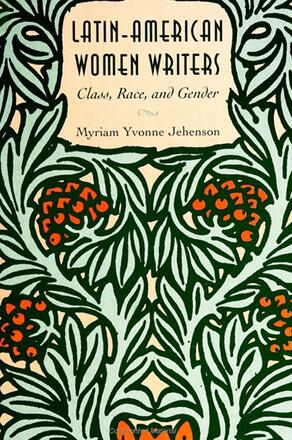
Latin-American Women Writers
Class, Race, and Gender
Alternative formats available from:
This book describes how Latin-American women writers of all classes, from the beginning of the twentieth century to the present, ironize masculinist, classicist, and racist cliches in their narratives.
Description
This book provides a much needed grouping of Latin-American women, emphasizing their differences—the diversity of their cultural backgrounds, socio-economic conditions, and literary strategies—as well as their commonalities. Humble writers of the Spanish and Portuguese testimonio and sophisticated postmodernist authors alike are contextualized within a "matriheritage of founding discourses. "
Myriam Yvonne Jehenson is Professor and Chair of International Languages and Literary and Cultural Studies at the University of Hartford. She is the author of The Golden World of Pastoral: A Comparative Study of Philip Sidney's "Arcadias" and Honore d'Urfe's "L'Astree.
Reviews
"This work is objective: intellectual rigor rather than politics governs its findings. It is theoretically sophisticated, but free of convoluted jargon. " — Marcia L. Welles, Barnard College
"Jehenson frequently uses a comparative approach and highlights the original treatment by Latin-American women writers of themes found in European literature from classical antiquity to the present. The author traces the nature of marginalization of women, both historically and in women's fiction. She shows the daring manner in which some of the writers reappropriate typically 'feminine' metaphors such as cooking, motherhood, and the idealization of love, in order to explore the social norms responsible for the marginalization and oppression of women. Testimonial narrative and elements of cruelty and the grotesque in fiction serve to denounce openly the terror of violence and injustice. " — Georgina J. Whittingham, State University of New York College at Oswego